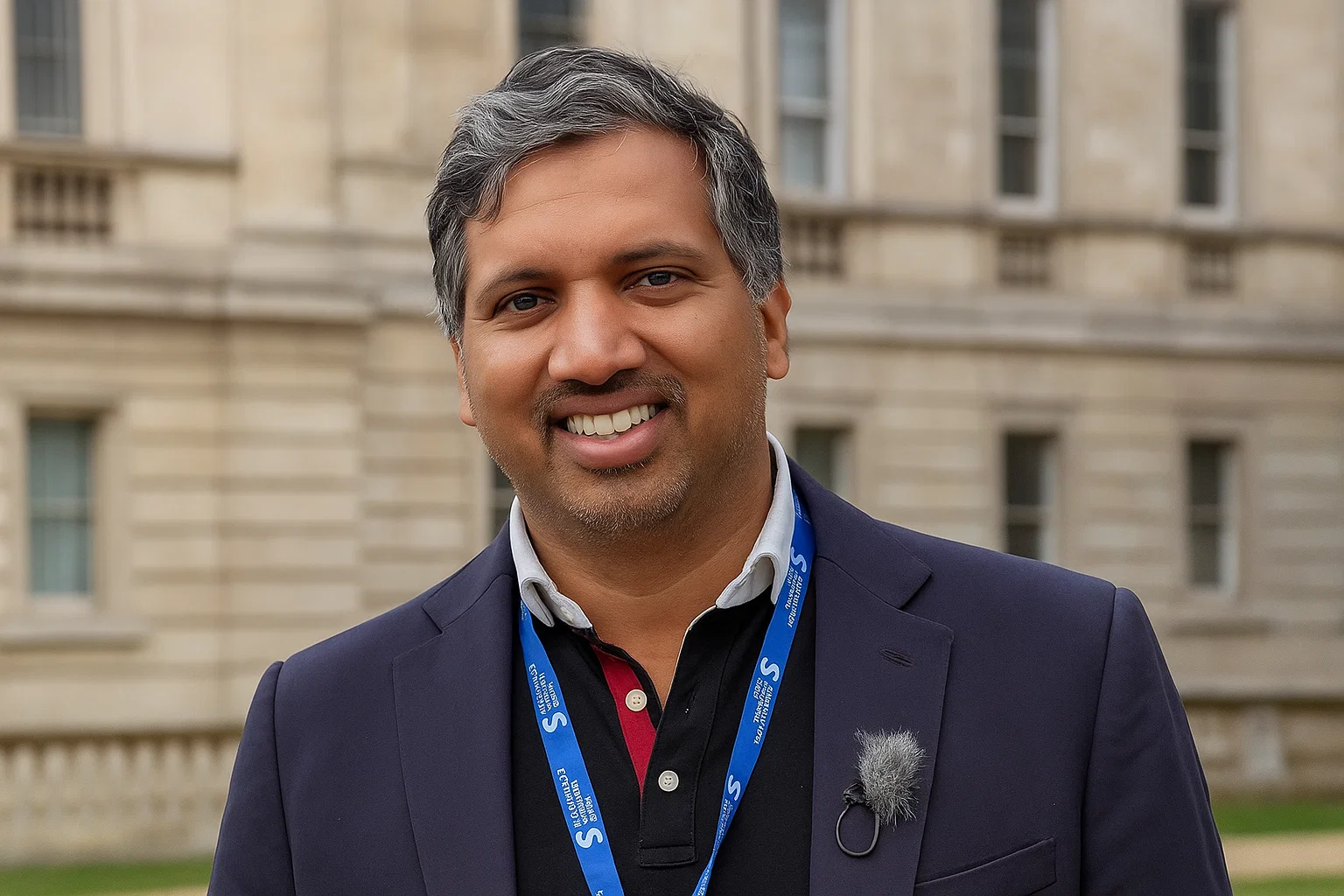Faisal Islam is one of the leading figures in British journalism, particularly in the fields of economics and politics. Serving as the Economics Editor at BBC News, he has earned widespread recognition for his insightful reporting and in-depth analysis of complex economic issues. With an impressive career trajectory, numerous accolades, and a rich personal background, Faisal Islam has become a trusted voice in economic journalism in the UK.
Faisal Islam Early Life and Education
Faisal Islam was born on May 29, 1977, in Manchester, England. He grew up in the multicultural areas of Didsbury and Longsight, areas that have helped shape his diverse worldview. Faisal hails from a Bengali Muslim family, with his roots tracing back to West Bengal, India. His multicultural heritage is an essential part of his identity, and he has often shared his pride in being British, Bengali, Muslim, and Mancunian.
Islam’s educational journey began at The Manchester Grammar School, one of the UK’s most prestigious independent schools. He went on to study at Trinity College, Cambridge, where he earned a Bachelor of Arts degree. After completing his undergraduate studies, he pursued a master’s degree in newspaper journalism from City University London in 2000. His solid academic background laid the foundation for his successful journalism career.
Faisal Islam Career Trajectory
Faisal Islam’s journalism career began in 2004 when he joined The Observer as an economics correspondent. His deep understanding of economic issues and his ability to break down complex topics for a general audience quickly made him a valuable asset to the publication. In 2010, Islam’s talent was recognized by Channel 4 News, where he took on the role of economics editor. He held this position for four years, covering major events such as the global financial crisis, the Icelandic banking collapse, and the economic fallout from various international events.
In 2014, Islam moved to Sky News as the political editor, where he was responsible for covering major political stories, including the Scottish independence referendum and the Brexit debates. His sharp analysis of these political events earned him a solid reputation in the industry.
In 2019, Islam transitioned to BBC News, taking over as the Economics Editor, where he succeeded Kamal Ahmed. As the Economics Editor at BBC, he has been at the forefront of reporting on the UK economy, including inflation, monetary policy, and global economic challenges. Islam also presents Newsnight, further expanding his presence and influence in British broadcasting.
Faisal Islam Awards and Recognition
Throughout his career, Faisal Islam has earned numerous accolades that attest to his skills as a journalist. In 2000, he won the Wincott Award for Young Financial Journalist of the Year, marking the beginning of his recognition in the field. Islam was also shortlisted for Young Journalist of the Year at the British Press Awards. In 2006, he was awarded the Royal Society of Television Award for Young Journalist of the Year for his outstanding reporting on economic and financial matters. One of his most notable achievements came in 2017 when he received the Royal Television Society’s Interview of the Year award for his memorable interview with then-Prime Minister David Cameron.
Faisal Islam Personal Life
While Faisal Islam is a public figure, he has managed to keep much of his personal life private. He is married and has children, though details about his spouse remain largely undisclosed. Islam has occasionally mentioned his family on social media, sharing how his multicultural upbringing has shaped his worldview. His private yet engaged presence on platforms like Twitter allows his followers to get insights into his personal reflections, along with his professional commentary on economic and political issues.
In terms of his religious beliefs, Faisal Islam practices Islam, a significant part of his identity, though he rarely discusses his personal faith in public. He has openly expressed his pride in his Bengali Muslim heritage, which has been an essential influence on his career and personal values.
Social Media Presence
Faisal Islam has a robust presence on social media, particularly on X (formerly Twitter), where he shares updates on economic trends, political analysis, and occasional glimpses into his personal life. His Twitter handle, @faisalislam, serves as a platform where he interacts with his followers, provides commentary, and shares professional insights.
Faisal Islam Salary and Financial Standing
As of the 2024/25 financial year, Faisal Islam’s salary at the BBC is reported to fall between £235,000 and £239,999. This places him among the higher-earning journalists at the BBC and reflects his significant role within the network. Given his experience and the prominence of his position, this salary is a reflection of the value that the BBC places on his work and expertise in economic reporting.
Ethnicity and Religion
Faisal Islam’s ethnicity is Bengali, with his family originally hailing from West Bengal, India. He practices Islam, a faith that plays a central role in his life. His heritage and religious background have shaped his perspective on both personal and professional matters. Despite his success, he remains deeply connected to his roots, which he often refers to in his commentary on culture, economics, and politics.
Conclusion
Faisal Islam’s rise to prominence as one of the leading journalists in the UK is a testament to his intellect, dedication, and commitment to high-quality journalism. From his early days at The Observer to his current role as the Economics Editor at BBC News, Islam has established himself as a trusted voice in the field of economics and political reporting. His ability to explain complex topics clearly and concisely has earned him recognition, accolades, and a loyal following.
Through his work, Faisal Islam continues to shape public understanding of economic policies and global financial issues. His diverse background, grounded in both professional expertise and personal heritage, makes him a unique and influential figure in British journalism. Whether on the BBC, Twitter, or public speaking events, Faisal Islam’s voice will continue to be an important part of discussions surrounding the economy, politics, and society.
